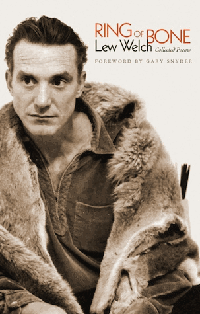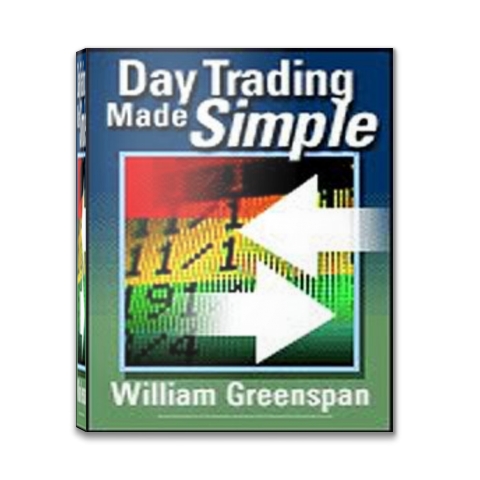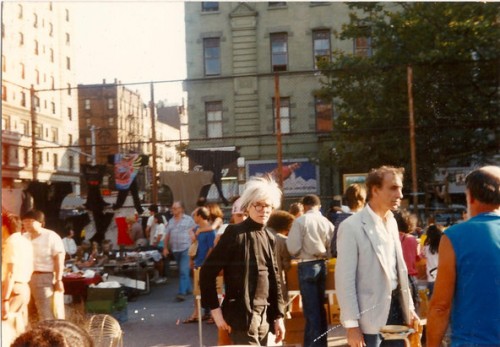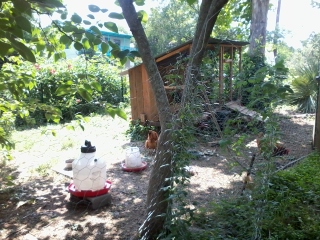Day Writing for Prosumers
McDonald’s, Target, Dicks: an interview with Shane Jones
 Everything’s coming up Shane Jones. His new book, Daniel Fights a Hurricane, releases today from Penguin (check out Ellen Frances’s sweet trailer here), which means Shane is back in full swing on the internet. Awesome—it’s good to read his mind like this, enjoy his wit and ingenuity. Here is an homage to Faulkner at Tin House. At The Millions, an essay about why he writes. PLUS, Albany crowned him the best writer in all the city, so you know, he’s got that going for him, which is nice. I just got my new copy of NYLON, and they’ve reviewed the book; Jess Sauer calls it “a modern fable, and despite its apocalyptic overtones, Daniel’s delusions are more beautiful than grim.”
Everything’s coming up Shane Jones. His new book, Daniel Fights a Hurricane, releases today from Penguin (check out Ellen Frances’s sweet trailer here), which means Shane is back in full swing on the internet. Awesome—it’s good to read his mind like this, enjoy his wit and ingenuity. Here is an homage to Faulkner at Tin House. At The Millions, an essay about why he writes. PLUS, Albany crowned him the best writer in all the city, so you know, he’s got that going for him, which is nice. I just got my new copy of NYLON, and they’ve reviewed the book; Jess Sauer calls it “a modern fable, and despite its apocalyptic overtones, Daniel’s delusions are more beautiful than grim.”
The most striking feature of the novel for me is how palpable the levels of reality are. Shane juggles all these layers of occurrence and perception in an unsettling way, but what makes him so good at it is 1) how funny he is, and 2) how effectively he times the switches, brings in the actuality, gives hints about what’s what. The book is like a snowflake: no two readings will ever be alike.
How do you like being Best Writer in Albany?
The local arts paper here does that every year – a best of thing. I think local businesses really try and get like “Best Place for Dinner” because it translates into people eating at their place. But Best Writer? Meh. I don’t know if anyone really cares. I joked to a friend of mine that I was going on a “best of” tour in Albany but he didn’t think it was too funny. It’s tough being the best.
So, what’s Daniel’s problem?
That’s a good question. I don’t know. He fits into the world and he also doesn’t fit into the world. My biggest fear is that people will read his character as just “some insane guy” and won’t see any of the beauty, sadness, depth, of his character and world. Daniel’s biggest problem will probably be certain readers.
So—Daniel Fights a Hurricane—weird book, huh? I think once again you’ve created something that does things with story that people don’t expect. How do you describe it to smart people who maybe don’t read a lot?
I’ve said before how hard it is to describe my own book. Do you have this problem? You’re really handsome, so people probably just buy your book immediately. I have a fantasy where I just scream into someone’s face “JUST READ THE FUCKING BOOK!” and they’re like, “Oh wow, yeah, I’ll go and read it right now.” I guess it is a weird book? It mixes reality and imagination and overlaps them and weaves them together and stuff like that. It’s like mixing a bunch of colors of paint in one can and seeing what’s going to happen. READ MORE >
Chris Marker died
He was 91. He passed away on his birthday, a Markerish thing to do. He made La Jetée and Sans soleil; he also made Le tombeau d’Alexandre (The Last Bolshevik), which has one of the greatest endings I’ve even seen:
And he made Le fond de l’air est rouge (Grin without a Cat) and Une journée d’Andrei Arsenevitch (about Andrei Tarkovsky), and A.K. (about Akira Kurosawa). And he produced Loin du Vietnam. And he made many other films.
Christian Marclay’s “The Clocks”
In about 20 minutes (12:04), you can experience a portion of Christian Marclay’s 24-hour-long video installation “The Clocks” in sync, here:
http://www.youtube.com/watch?v=xp4EUryS6ac&feature=youtu.be
If you’re unfamiliar with this project, here’s a BBC clip of Alain de Botton discussing it:
http://www.youtube.com/watch?v=rB3CgEnxnYY&feature=related
And friends in NYC, today is the last day for you to go see this amazing film for free at The Lincoln Center.
Seismic Impacts, or Miniscule Ones: an interview with Dan Magers
 Partyknife, by Dan Magers, was published by Birds, LLC in June. It’s an irresistible collection of poetry, remarkably NOW—remarkably of the moment—while also markedly aware of what poetry is and has been and will be.
Partyknife, by Dan Magers, was published by Birds, LLC in June. It’s an irresistible collection of poetry, remarkably NOW—remarkably of the moment—while also markedly aware of what poetry is and has been and will be.
The book is set up like a record, with a Side A and Side B. It’s even shaped and designed like a 7″. While the 70 poems inside are mostly short, they read continuously, cohesively, with a seamless logic to them. Magers’ subjects are the sort of things you’d find in the room of the coolest guy in your dorm: like, you know, metal bands and video games and pot and amps and a sexy grime.
Here’s how Blake described it at Vice, which nails it:
at first it seems you’re being spoken to in party conversation talk, then it seems maybe like you’re on Twitter, then suddenly you’re digging through one of Wittgenstein’s notebooks, then you’re reading a letter from someone you used to know.
In that way, it’s a very familiar and welcoming book. So Dan’s a good guy to talk about poetry’s situation, which we do in the following interview.
Ring of Bone
 Ring of Bone: Collected Poems
Ring of Bone: Collected Poems
by Lew Welch, Ed. Donald Allen
Forword by Gary Snyder
City Lights Publishers, June 2012
252 pages / $17.95 Buy from City Lights
Lew Welch’s collection, Ring of Bone, is more of an artist’s assemblage than a simple book of poems. This new and expanded edition by City Lights Press encompasses Welch’s poetry, music, drawings and critical writings, providing fans with a definitive edition of the poet’s long-lost works, and new readers with an expansive sample of his writing.
As Gary Snyder’s forword tells us, Welch was a little-known 60’s generation poet who was living with Snyder temporarily while building a cabin on Ginsburg’s adjoining land, when, on May 23, 1971, Welch hiked into the Sierra Nevada Mountains carrying a revolver. A suicide note, indicating a deep depression, was all that was ever found, but the mystery of this final day has made Welch somewhat of a cult figure. Fortunately, Ring of Bone, brings together Welch’s unfinished writings, providing readers with a remarkable set of poems without dramatizing the events surrounding Welch’s death.
This newly released collection is arranged into five books and a set of uncollected writings, which follow a loose chronology. However, unlike many collected works, the order of the poems is not the focus. By nature of their visionary quality, these poems form a world of dreams and nightmares so convincingly that strict organization proves ultimately unnecessary. Instead, the poems speak to each other across time through their musical tonalities and recurring thematic tensions, thus constructing one of many “rings” invoked by the book’s title.
July 30th, 2012 / 12:00 pm
14 reaminations of humor and memory
1. The Washington Post has an interesting “How to Save an Indie Bookstore” blog post here with lots of glow links to booky things.
3. Here is your Charlie Sheen metaphor of the day:
My life was a dream I couldn’t wake up from, a train I couldn’t get off of, except that I was the conductor.
The Time I Shot Andy Warhol
14. Oldie but goodie: You are about to begin reading Italo Calvino‘s new novel, If on a winter’s night a traveller. Relax. Let the world around you fade.
2. Latest (I think) Charles Yu interview:
Sadness broods
over the world
I fear to walk in my garden,
lest I see
a pair of butterflies
disporting in the sun
among the flowers.
(“Night Rain” by Bruce Lee)
5. Do you like reality shows? Do you like poetry? Well, here you go:
6. An obvious Banksy Olympics thing:
Lincoln Michel‘s class asked him what the current trending literary styles are. He said G-Chat Realism and Magical Tweeism.
Go!
Literature as Commentary on Grammer
I like to think there is no substitute for space but I kind of don’t know how true anything is. If you don’t have space, you don’t have a place to unpack your shit. I can’t remember what I’ve read unless I look up and see the spine on its shelf.
This sentence: a painting of Alfred Korzybski reading Hamlet in the shower, as he drops the soap. We either do or do not look away. I’m taking care of my neighbor’s chickens. They are famous. Mostly in the gay community. A couple want their butts shaken. After this is done now and then they strut away, content. And you can’t really help but gawk at these dinosaurs as they till millions of years into the soil with an awkward scratch, arching their skinny necks, ruffling dirty feathers. If the soil is watered, or tilled, they gaze into the brown as if it were the very very meaning of life.




